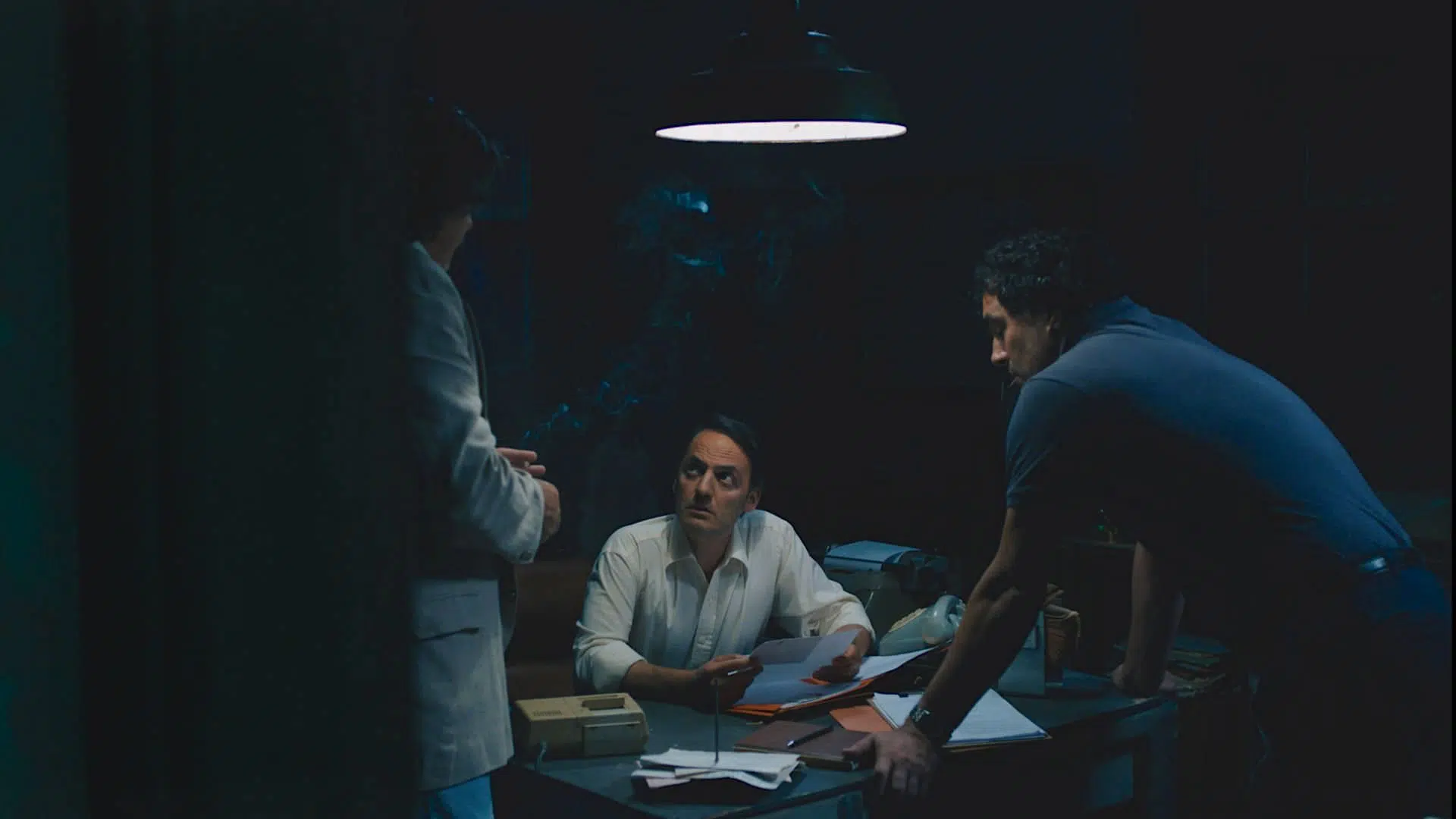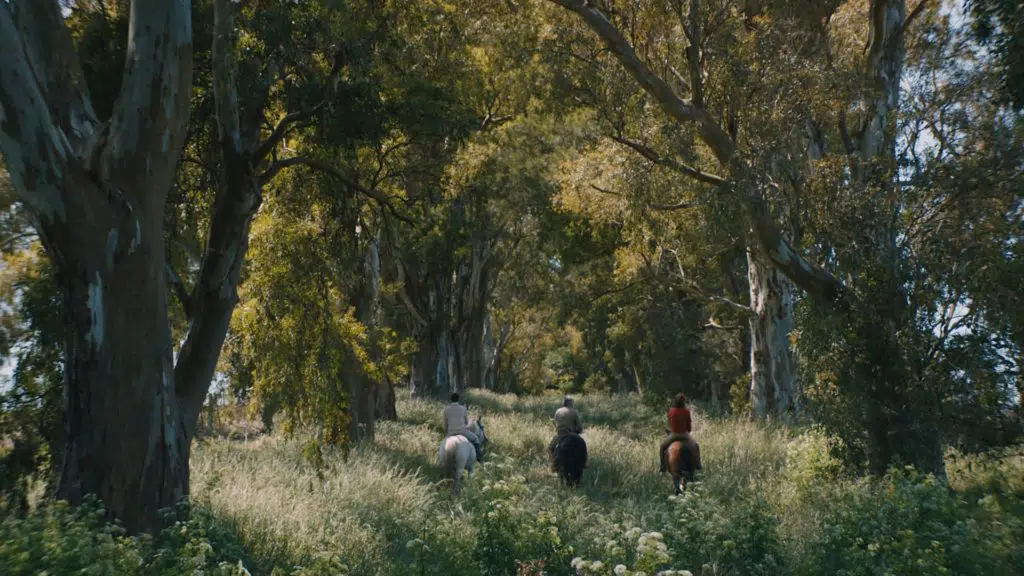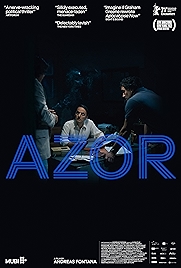A Swiss banker arrives in Argentina in 1980 looking for his partner, who’s mysteriously disappeared. Writer/director Andreas Fontana’s debut feature Azor tracks the progress of Ivan de Wiel, which is anything but straightforward, in an oblique, tangential, mood-soaked almost-thriller that’s more about the journey than the destination.
Being Argentina in 1980, with a military junta in charge, strict class hierarchies in place and much of the “action” (there’s almost none) taking place in dark corners of colonial hotels where seedy middle aged and old white guys swap favours, the spectre of Graham Greene arises unbidden from the shadows.
Ivan de Wiel (Fabrizio Rongione) is your Greene-esque anti-hero, an old-school Swiss banker trying to track down the missing Rene Keys, his partner in the private Swiss bank set up by de Wiel’s grandfather and which now looks after the wealth of a very particular slice of Argentina’s elite, all of them twitchy about what the junta means for their money.
The structure is Apocalype Now, with de Wiel venturing further and further “up river” attempting to find the disappeared Keys, a man whose name conjures anecdotes and strong opinions from all who met him. What was Keys up to? Where has he gone? Is he safely back in Europe or tied to a chair in the basement of a building somewhere in Buenos Aires? Why is de Wiel so keen to find him? He doesn’t exactly seem upset that Keys has disappeared.
Alongside the almost entirely blank de Wiel is his wife, Inés (Stéphanie Cléau), a snob whose real attitude towards her rich but ostentation-free husband only becomes really apparent as Azor starts winding towards its close. She’s also a useful explicatory character, telling a fellow guest at a drinks party about this banking marriage’s vocabulary of duplicity – “azor” turns out to be a code word for “careful what you say” but there are plenty of others.
Of actual action there is very little, of suggestion that something is about to happen there is masses, right from the opening scenes. De Wiel is stuck in a car on a street where the military are shaking down a long haired youth. Violence seems imminent, thanks in large extent to the loud, clanking score of single synth notes by Paul Courlet which suggest a fanfare, or a warning. It’s an unusual and effective soundtrack throughout, and spread very thin. Courlet goes quiet for whole stretches, only to come back with a loud, alarm-style interjection to frontload an upcoming scene with foreboding.
Lit murkily by DP Gabriel Sandru, it plays out as if the audience were always eavesdropping, the camera pulled back, often static with the framing not quite as we’d expect. Peeping.
As a metaphor for the gilded and faintly vampiric class it portrays – private runways on their properties, horse-breeding, cocktails by the pool – it’s perfect. These people, even in full view, remain as shadowy as the disappeared Keys.
Across the board the actors follow suit, with poker faces maintained and duplicity traded as their existentially bored characters make smalltalk about the European cities where they have houses, and how you simply must come and visit us when you’re there etc.
How Ivan de Wiel fits in to all this is a nuggety enigma inside this mystery. For sure he’s wealthy – he part-owns a private bank after all – but beneath the featureless exterior there are flickers (emotion, irritation, ennui?) and his wife chides him at one point for being “weak”. She sits far more comfortably in this world of the gilded elite, and though it’s never really stated why he brought her along on this business trip of extreme delicacy, the suspicion grows that she’s the brains in this outfit.
That’s it – a man going from client to client enquiring into the whereabouts of his business partner, with his wife at his side, concluding little bits of business as he goes, matters of vast consequence dealt with in a moment, with a nod and a handshake. It’s sometime in the 1980s and neoliberalism is freeing up international capital. In Andreas Fontana’s menacingly cool and formidably different drama, we’re in at the birth of the global elite as they are shaking off their identities as citizens of somewhere.
Azor – Watch it/buy it at Amazon
I am an Amazon affiliate
© Steve Morrissey 2021



This was an excellent review. Your insights helped me further ‘into’ this, enjoyably opaque, film. Thank you.
Thanks for kind words. It is an odd (opaque, as you say) film, with a lot going on below the surface. Steve